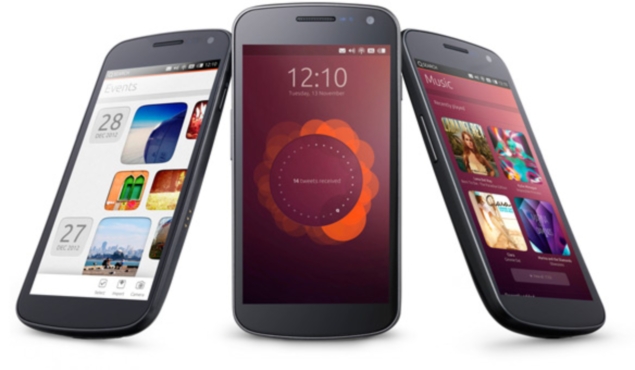- Home
- Mobiles
- Mobiles News
- Ubuntu OS for smartphones is official; first devices expected 2014
Ubuntu OS for smartphones is official; first devices expected 2014

"We expect Ubuntu to be popular in the enterprise market, enabling customers to provision a single secure device for all PC, thin client and phone functions. Ubuntu is already the most widely used Linux enterprise desktop, with customers in a wide range of sectors focused on security, cost and manageability," said Jane Silber, CEO of Canonical. "We also see an opportunity in basic smartphones that are used for the phone, SMS, web and email, where Ubuntu outperforms thanks to its native core apps and stylish presentation."
Ubuntu OS has support for both ARM and x86 processors. This means it could be made to run on most, if not all, of today's Android-powered smartphones without too much effort.
Announced back in February last year, Ubuntu OS (for phones) constitutes similar drivers kernel seen on Android. Canonical's chief Mark Shuttleworth showcased a Galaxy Nexus running the mobile version of Ubuntu featuring a swipe-based Menu. Other known features are voice command, a dedicated app store and personalised welcome screen.
The OS will have both web-based as well as native apps. Unfortunately, there is still no news regarding what kind of hardware to expect, other than the fact we are looking at a 2014 release.
Ubuntu is considered by many to be the best Linux distro out there, and it does enjoy a lot of developer/ community support. It is the latest in a series of smartphone operating systems from companies and associations not known for their smartphone lineup. This includes Open webOS, FirefoxOS, Jolla's Sailfish OS and Samsung-owned Tizen. While we have already seen Sailfish and Open webOS in action, most things about FirefoxOS are still unknown.
Get your daily dose of tech news, reviews, and insights, in under 80 characters on Gadgets 360 Turbo. Connect with fellow tech lovers on our Forum. Follow us on X, Facebook, WhatsApp, Threads and Google News for instant updates. Catch all the action on our YouTube channel.
Related Stories
- Samsung Galaxy Unpacked 2026
- iPhone 17 Pro Max
- ChatGPT
- iOS 26
- Laptop Under 50000
- Smartwatch Under 10000
- Apple Vision Pro
- Oneplus 12
- OnePlus Nord CE 3 Lite 5G
- iPhone 13
- Xiaomi 14 Pro
- Oppo Find N3
- Tecno Spark Go (2023)
- Realme V30
- Best Phones Under 25000
- Samsung Galaxy S24 Series
- Cryptocurrency
- iQoo 12
- Samsung Galaxy S24 Ultra
- Giottus
- Samsung Galaxy Z Flip 5
- Apple 'Scary Fast'
- Housefull 5
- GoPro Hero 12 Black Review
- Invincible Season 2
- JioGlass
- HD Ready TV
- Latest Mobile Phones
- Compare Phones
- Tecno Pova Curve 2 5G
- Lava Yuva Star 3
- Honor X6d
- OPPO K14x 5G
- Samsung Galaxy F70e 5G
- iQOO 15 Ultra
- OPPO A6v 5G
- OPPO A6i+ 5G
- Asus Vivobook 16 (M1605NAQ)
- Asus Vivobook 15 (2026)
- Brave Ark 2-in-1
- Black Shark Gaming Tablet
- boAt Chrome Iris
- HMD Watch P1
- Haier H5E Series
- Acerpure Nitro Z Series 100-inch QLED TV
- Asus ROG Ally
- Nintendo Switch Lite
- Haier 1.6 Ton 5 Star Inverter Split AC (HSU19G-MZAID5BN-INV)
- Haier 1.6 Ton 5 Star Inverter Split AC (HSU19G-MZAIM5BN-INV)







![[Partner Content] OPPO Reno15 Series: AI Portrait Camera, Popout and First Compact Reno](https://www.gadgets360.com/static/mobile/images/spacer.png)









